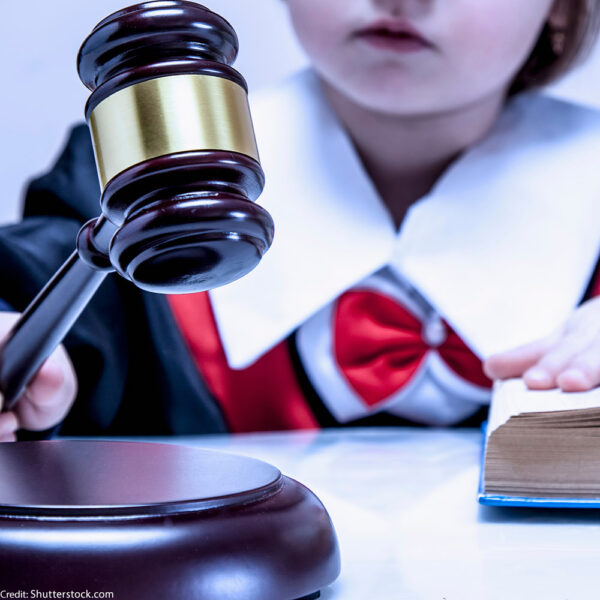At Supreme Court, Tennessee Seeks to Expand Reach of Dobbs to Ban Health Care for Transgender Youth
WASHINGTON – In their brief defending the state’s ban on gender-affirming medical care for transgender youth, Tennessee Attorney General Jonathan Skrmetti has asked the Supreme Court to expand its ruling overturning Roe v. Wade and allow the state to target transgender people’s autonomy over their own bodies, too.
In U.S. v. Skrmetti, three Tennessee transgender youth and their families are challenging a state law that prohibits medical providers from prescribing medical treatments to transgender youth, such as puberty blockers and hormone replacement therapies, that are allowed for minors who are not transgender. Represented by the American Civil Liberties Union, the ACLU of Tennessee, Lambda Legal, and Akin Gump Strauss Hauer & Feld LLP, the families argue that the ban violates their Equal Protection rights under the 14th Amendment.
In the brief filed today, Tennessee relies on the Supreme Court’s 2022 ruling in Dobbs v. Jackson Whole Women’s Health in an attempt to justify its ban on gender-affirming health care for transgender people. The brief cites to Dobbs at least 10 times in sweeping arguments to justify government sex discrimination.
“We’ve seen just how far extreme politicians will push to deny us our reproductive freedom, from banning abortion to threatening IVF to even threatening to put doctors in jail for providing emergency care, with deadly consequences for women’s lives,” said Jennifer Dalven, director of the ACLU’s Reproductive Freedom Project. “The same politicians who are trying to control women have now set their sights on transgender people and their families and are trying to control their bodies and lives. Allowing politicians to continue down this road could hold severe implications for the freedom of all people to decide what is right for their own body.”
Tennessee claims that their ban on gender-affirming care does not discriminate on the basis of sex even though it bans minors of one sex from accessing health care it allows to members of another sex. A transgender girl is barred from taking doctor-prescribed estrogen because Tennessee considers it “inconsistent” with her birth-assigned sex of male but a cisgender girl with a birth-assigned sex of female is permitted to take estrogen for any purpose including to affirm her female gender identity.
“Since this Project’s founding by Justice Ruth Bader Ginsburg, we have adamantly challenged efforts to limit who we can be based on our gender or ability to bear children,” said Ria Tabacco Mar, director of the ACLU’s Women’s Rights Project. “Tennessee’s attempt to limit who young people can become based on their sex shares a through-line with our nation’s history of subjugating women in the name of biology. The fight for each of us to live fully and authentically must include trans people. There is no ‘transgender’ exception to the U.S. Constitution.”
In April 2023, the American Civil Liberties Union, the ACLU of Tennessee, Lambda Legal, and Akin Gump Strauss Hauer & Feld LLP sued the state of Tennessee to block S.B. 1, which prohibits medical providers from prescribing medical treatments to transgender youth, such as puberty blockers and hormone replacement therapies, that it exempts for minors who are not transgender. Following a decision by the Sixth Circuit Court of Appeals, S.B. 1 took effect in July 2023. Since 2021, 24 states have banned hormone therapies for transgender youth.
“Laws like Tennessee’s are not benign regulations of medical care; they are discriminatory efforts to exclude transgender people from the protections of the Constitution,” said Chase Strangio, co-director of the ACLU’s LGBTQ & HIV Project. “These bans represent a dangerous and discriminatory affront to the well-being of transgender youth across the country and their constitutional right to equal protection under the law.”





